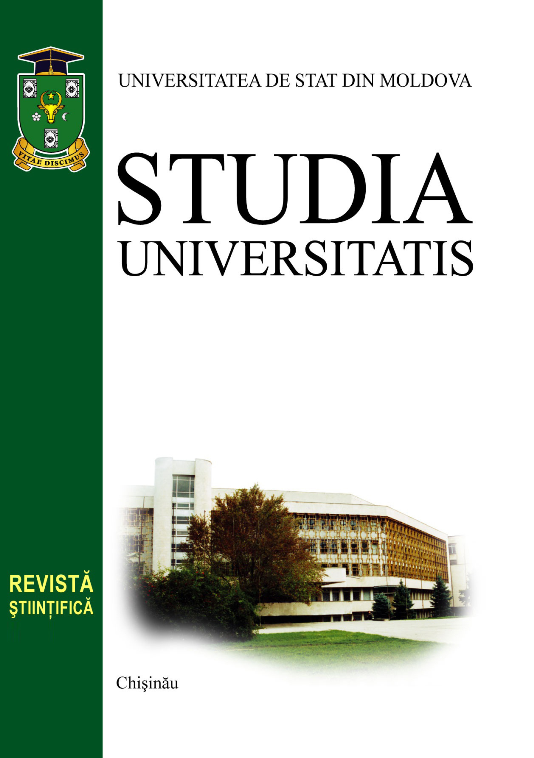EVALUAREA TERMOTOLERANŢEI FRUNZELOR SPECIILOR DE STEJAR RĂSPÂNDITE ÎN REPUBLICA MOLDOVA CU AJUTORUL METODEI DE SCURGERE A ELECTROLIŢILOR
Petru CUZA Universitatea de Stat din Moldova
Abstract
EVALUATION OF THE THERMOTOLERANCE OF THE LEAVES OF OAK SPECIES SPREAD IN THE REPUBLIC OF MOLDOVA USING THE ELECTROLYTE LEAKAGE METHOD
Climate change affects the health and productivity of forests, which justifies the role of research on assessing the action of heat stress factors on possible changes in the spread of oak species. Among the factors that cause environmental stress, excessive temperatures and heat have a negative influence on the composition of plant communities due to changes in the distribution of species. The response of plants to the action of thermal includes avoiding stressors and the physiological and biochemical mechanisms of recovery of lesions caused to leaf tissues. Resistance of oak species to the thermal shock action changes depending on the environmental conditions in which the trees grow. Among the oak species spread in the Republic of Moldova, downy oak is characterized by advanced thermotolerance. After excluding the influence of mechanisms that determine the avoidance/diminution the action of high temperatures, the leaves of downy oak compared to those of pedunculate oak and sessile oak have shown an increased resistance to thermal shock in the environmental conditions of central and southern RM. In the environmental conditions in the north of the RM, the pedunculate oak compared to the downy oak and the sessile oak showed a high resistance to the action of high temperatures.
Keywords: Quercus robur, Q. petraea, Q. pubescens, leaves, electrolyte leakage, resistance, lethal dose (LD50).


